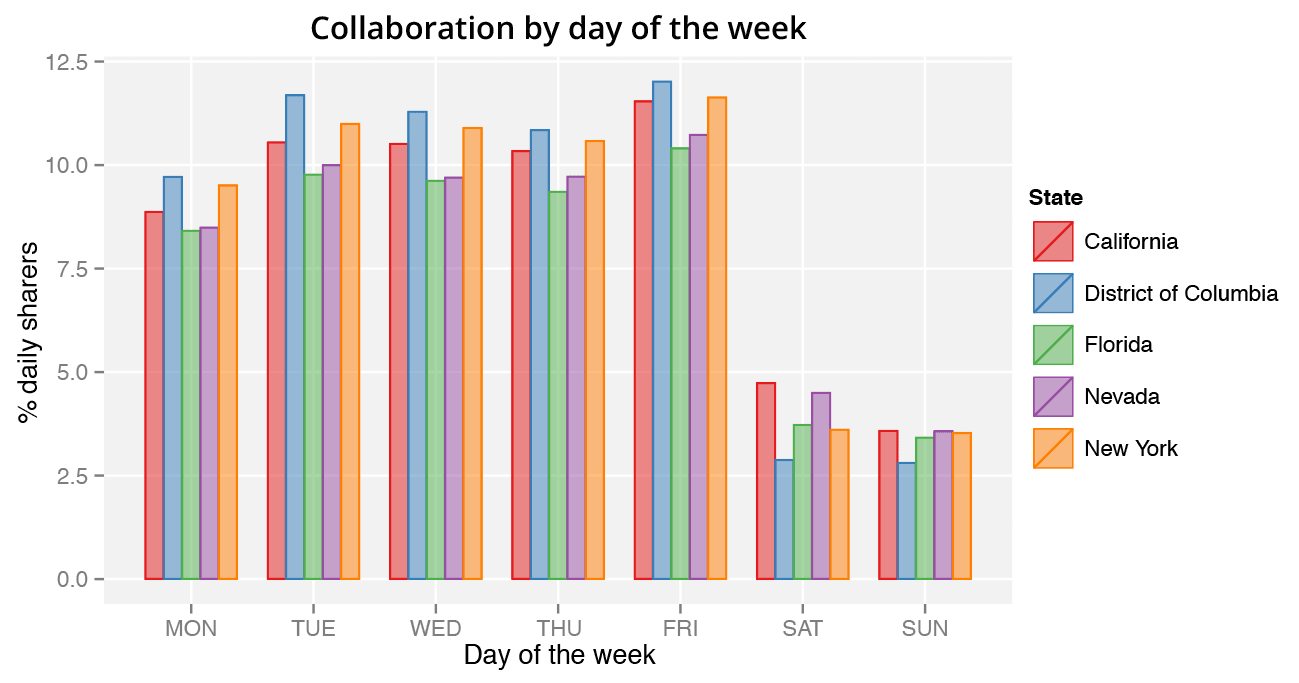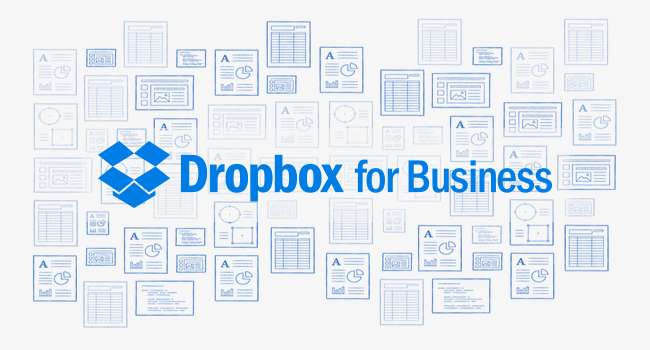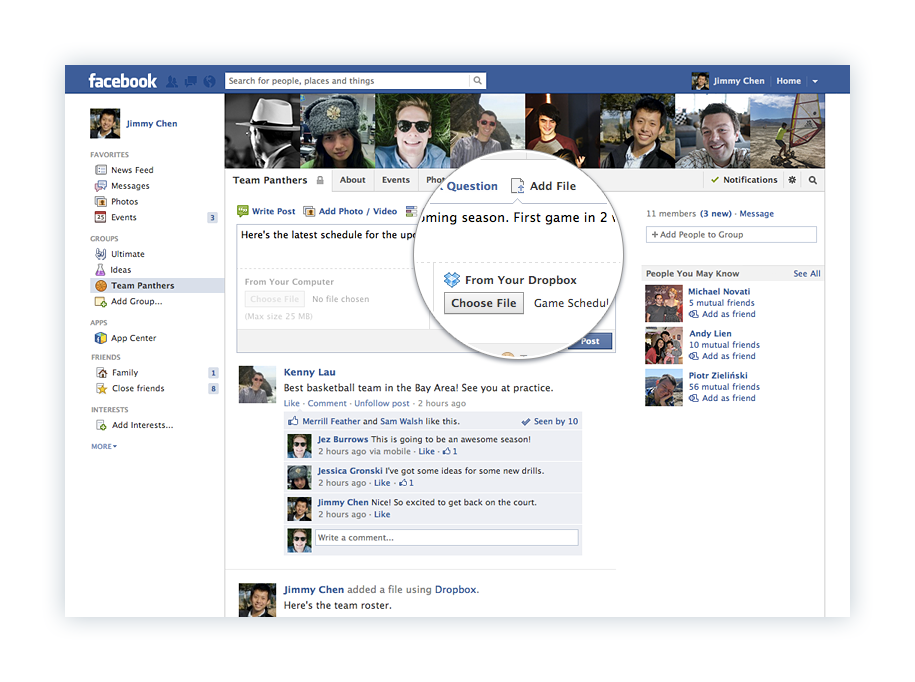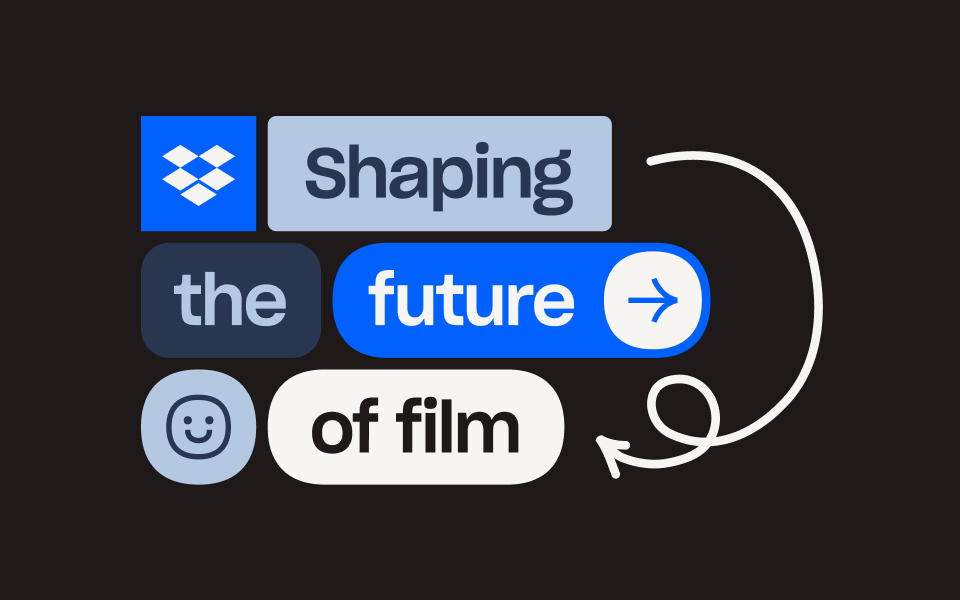At Dropbox, we’ve always valued diversity, equity, and inclusion (DEI). DEI is infused in our culture, integral to how our systems function internally, and important to how we think about our business and our customers. In 2021, we focused on how to further incorporate DEI into our virtual operating model, which we call Virtual First.
We have three multi-year diversity commitments that all Dropbox employees contribute to:
- Hire a diverse team
- Develop and advance equitably
- Engage in personal growth
These commitments are intentionally specific and action-oriented, so that all employees can play a role in promoting diversity, equity, and inclusion at Dropbox.
Progress, learnings, and achievements on our 2021 annual aspiration
In addition to our diversity commitments, we set annual aspirations to increase or maintain representation for women and underrepresented minorities1 (URMs) at the mid-career level and above. In 2021, our aspiration was to maintain or exceed representation for women and URMs at these levels. Setting these aspirations is key to achieving our business objectives, increasing the quality of our work experience, and creating a stronger sense of belonging for these groups.
2021 was an unprecedented year for hiring and retention across the industry as the talent environment became even more competitive. With many companies moving to remote work, employees saw new opportunities open up like they never have before. This had an impact on our ability to meet our goal of maintaining or exceeding representation for URMs at the mid-career level and above in 2021.
Though we saw a dip in URM representation from 2020 to 2021, we’re encouraged that we’ve seen an overall increase in representation for both URMs and women over the past five years. In this timeframe, women’s representation in leadership positions increased from 25.8% to 39.8% and URM representation increased from 5.2% to 9.8%. As we look ahead to 2022 and beyond, we’ll continue to invest in programs that promote DEI in the workplace, and help us improve representation even further. We outline this in more detail below.
Representation for women and URMs at mid-career level and above:
|
2020 Year-End |
2021 Aspiration |
2021 Year-End |
Women at mid-career level and above |
37% |
37% |
40% |
URMs at mid-career level and above |
11% |
11% |
10% |
Overall representation for women and URMs:
|
2020 Year-End |
2021 Year-End |
Women |
40% |
39% |
URMs |
12% |
12% |
Now, let’s take a deeper look into what we did in 2021 for each of our multi-year commitments.
Commitment 1: Hire a diverse team
We want to ensure that the teams building our products reflect the diversity of our customers. Since launching our Virtual First remote work strategy in October 2020, we’ve removed most geographic barriers to hiring within the U.S., giving us access to more diverse talent pools. In 2021, we saw that reflected in both the candidates we interviewed and our new hires at all levels.
The positive impact of distributed hiring on diversity
Before we transitioned to Virtual First (2018-19), 29% of our hires were based outside of traditional tech markets like San Francisco, New York City, and Seattle. By the end of 2021, that number grew to 56%. We’re also seeing increased momentum in these new hiring markets. Since Virtual First, we’ve had twice as many applicants per open role. In particular, we saw a 2.4x increase in gender diverse applicants per role and a 2.8x increase of URM diverse applicants per role compared to 2019.
All of this opens doors to building a more diverse workforce. In 2021, we saw a 4% increase in representation of URMs in our candidate pools across all employee levels compared to our pre-Virtual First averages from 2018-2019. It’s a promising trajectory that we hope will increase as we continue to expand our geographic footprint.
We made a number of enhancements in 2021 to make our talent acquisition efforts even more equitable:
- We committed to sharing our career frameworks with incoming candidates to ensure that they have a clear understanding of how the leveling process works at Dropbox.
- We created a special guide to help managers embed DEI best practices into every step of the hiring process. This is in addition to our existing DEI fundamentals training.
- We refocused our efforts to attract early career and non-traditional tech talent through:
- Forming a second cohort of IGNITE engineering apprentices
- Partnering with Next Chapter and YearUp
- Establishing a Historically Black College and University (HBCU) partnership with the Thurgood Marshall College Fund for internships on our customer success team
We also had strong representation at conferences to attract new and diverse talent to Dropbox. Read more about our activities and accomplishments at these events: Grace Hopper Celebration, Richard Tapia Celebration of Diversity in Computing, AfroTech, Latinas in Tech, and NextPlay.
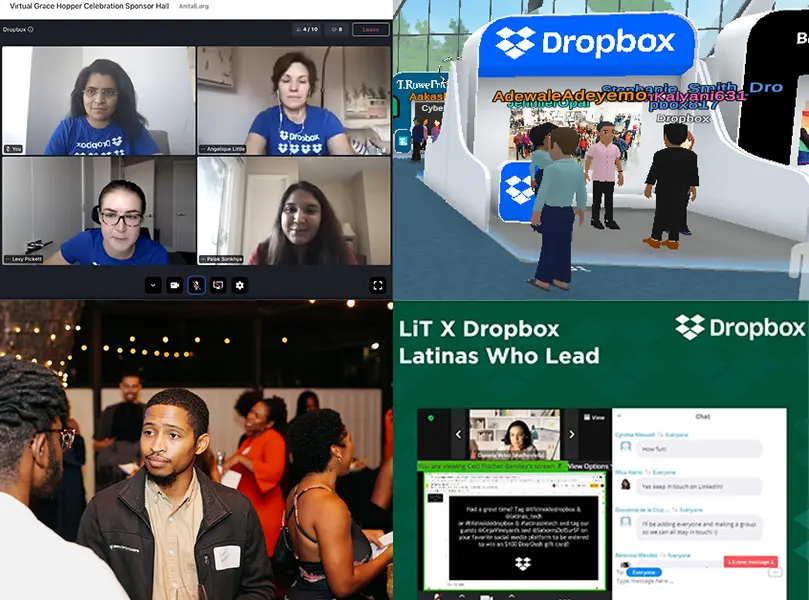
A look at our hiring numbers in 2021
Though there is still more work to be done, we’ve seen the impact of these efforts across the board:
- Overall: 15% of our new hires were URMs in 2021. This compares to 11% of our new hires being URMs in 2020. Women and URM hiring are both ~4 percentage points higher than they were 5 years ago.
- Mid- to senior levels: We’ve reached 40% representation of women at mid- to senior-levels. Over the last five years, women and URM representation in these levels have shown strong gains, increasing by 14 percentage points and 5 percentage points, respectively.
- Entry-level: 17% are URM, which represents a 5 percentage point increase from 2020. Entry level hiring for women and URMs has also increased over the last five years, gaining 1 percentage point for women and nearly 5 percentage points for URMs.
Ensuring we have a diversity of perspectives is important to us, not only within our own employee base, but on our Board of Directors as well. We were thrilled to welcome Sara Mathew, the former chairman and CEO of The Dun & Bradstreet Corporation, to the Dropbox Board of Directors in 2021.
Commitment 2: Develop and advance equitably
The increased competition for talent in 2021 reminded us of the importance of programs that help retain, develop, and advance our employees.
Keeping a pulse on retention with Project Maia
First launched in 2020, Project Maia is an initiative focused on retention efforts for women and URMs. The goal is to identify those employees who may be at risk of leaving Dropbox and to equip their managers with the tools to better understand how to retain them. This program encourages managers to have direct conversations with these employees focused on what changes, support, or resources they need to continue to grow their careers here at Dropbox.
We’re excited to report strong results in 2021:
- By the end of the year, retention among Project Maia was 88%—a full 22 percentage points higher than those from the same demographic outside of the program.
Developing our talent with Dropbox LEAD
Beyond retention, we’ve also developed programming to ensure that women and URMs advance equitably at Dropbox. Launched in 2020, Dropbox LEAD is a professional growth program designed for early career high-performing women and URMs at Dropbox. The curriculum supports participants in growing their professional networks, strengthening relationships with managers, increasing visibility with senior leadership, exploring growth opportunities, and advancing their role at the company.
These are some highlights from the program’s first cohort:
- LEAD participants are 2x as likely to be nominated for promotions over those from the same demographic outside of the program
- 98% of participants were retained at Dropbox throughout the program’s nine-month duration
- 88% of participants would recommend the program to a friend or colleague (93% in engineering, product, and design teams)
Setting up managers for success
Managers have always played a critical role in keeping teams connected, but this is even more important in a virtual work environment. To set them up for success, we hold quarterly Manager Summits, where managers can connect with peers, hear directly from executives, learn from external experts, and build community.
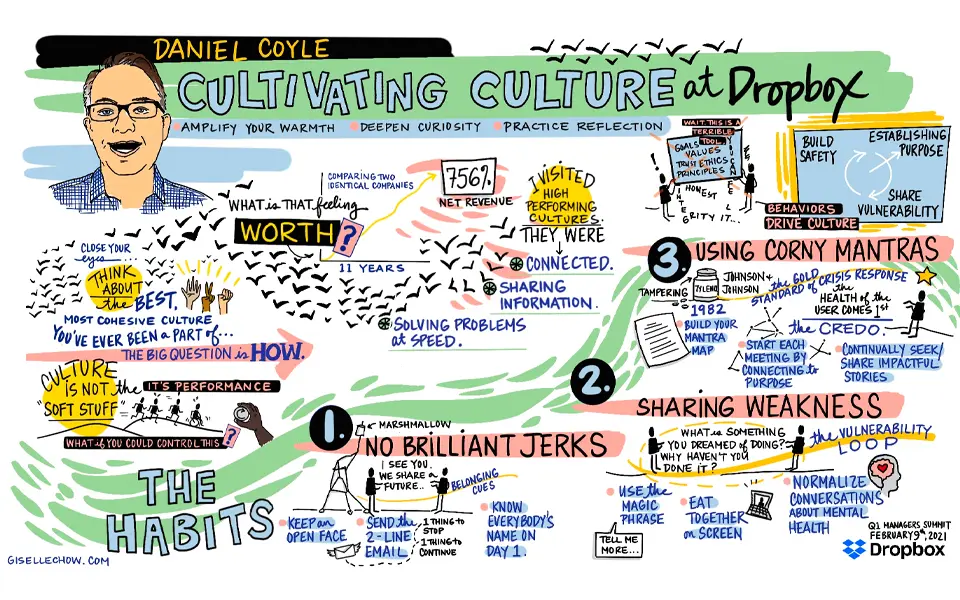
Making Dropbox a welcoming place for all
2022 marks the 8th year in a row that Dropbox has received a score of 100 on the Human Rights Campaign’s Corporate Equality Index. The Index is a national benchmarking tool measuring policies, practices, and benefits pertinent to LGBTQ employees. The score reflects the implementation of LGBTQ-inclusive policies and practices in the workplace.
Commitment 3: Engage in personal growth
Providing opportunities for our employees to grow both personally and professionally is critical for building an equitable and inclusive work environment.
Continued education
Our DEI team provides trainings and workshops that focus on topics such as unconscious bias, how to create an inclusive workplace, how to lead and develop teams equitably, and much more.
To date:
- 58% of new hires have taken at least one DEI training course.
- 62% of employees have completed the DEI fundamentals course.
- 60% of employees in people management positions have completed inclusive leadership training.
- 56% of managers completed the DEI Pathways manager assessment.
Being intentional about recognition
When employees live out DEI values in their day-to-day workplace interactions, we want to acknowledge their efforts. In 2021, we launched the DEI Trailblazer Award, which recognized six employees who went above and beyond to make Dropbox a more diverse, equitable, and inclusive place to work.
We’ve also made sure that managers discuss employees’ contributions to DEI efforts in our regular performance review cycles, and we implemented a program to provide opportunities for monetary compensation for employee volunteers who lead our Employee Resource Groups.
Employee Resource Groups (ERGs) help foster DEI at Dropbox with their ongoing programming. Here are some highlights from 2021:
- Hosted small group discussions: In response to the devastating external events of the past few years, including an increase in anti-Asian sentiment and racial injustice against Black Americans, we invited members of Asians@ and BlackDropboxers to speak about their experiences in a small group setting to create a deeper level of understanding and support within our community. Additionally, we held unique listening sessions with our Black, LatinX, and Trans and Non-binary communities to ensure we understand different elements of their unique experiences in the workplace.
- Expanded mentorship opportunities: Our BlackDropboxers ERG launched the Black Diamonds mentoring program, which aims to help Black employees create connection and gain career guidance from senior leaders across the company through 1:1 mentorships. Our Women@ ERG expanded its Circles program to EMEA, a program designed to provide women at Dropbox a supportive forum to take on new challenges, encourage each other, and talk openly about their ambitions.
- Expanded outreach: Vets@ consulted with Dropbox's recruiting team to launch a pilot Veteran's Hiring Initiative, which will continue into 2022.
- Drove awareness: Collectively, our ERGs hosted over 60 virtual events and seven major months of awareness to engage, delight, and educate their communities and allies across Dropbox. For example, EnABLE, our newest ERG, hosted a panel discussion focused on sharing their experiences navigating disabilities and mental health challenges throughout their careers.
Building community in a remote work world
To maintain a sense of community and make Dropbox a more inclusive remote work environment, we held our first-ever global employee conference called Sync Up. The experience was fully virtual and designed to give all employees dedicated time for connection. Through guest speakers, performances, and workshops, employees had the chance to learn from each other and unplug from work. The conference ran over the course of two days with over 1500 attendees across multiple timezones.
What comes next in 2022
Over the course of this year, we’ll continue to focus on our diversity commitments and work to ensure that employees are able to build connection in Virtual First.
Continued focus on Project Maia
As we consider ways to improve retention with URM talent, we’re implementing some changes to programs like Project Maia based on our learnings over the last year. We’ll begin our stay interviews earlier in the year so that we have more time to address any concerns or barriers. While we’ll continue to emphasize retaining underrepresented talent, we’ll also expand stay interviews to all Dropbox employees.
Establishing a Product Diversity Council
Our Product Diversity Council aims to increase our products’ inclusiveness and diverse representation across our customer-base. In 2021, the Council developed a clear mission and an end-to-end review process to assess new products for bias. They also worked with our ERGs to collect a diverse data set to train our machine learning algorithm.
In 2022, the Council will incorporate lessons learned from 2021, recruit new members, raise greater awareness of the group among product teams, and integrate their reviews into our broader product development lifecycle.
Promoting diversity of our suppliers
Our procurement team established the foundation for supplier diversity in 2021 by:
- Using a new platform that allows us to choose from a larger and more diverse pool of vendors, products, and services
- Implementing a certification tool that allows small businesses to self-certify as diverse, saving costs and time from having to apply for different types of certifications
- Creating inaugural supplier diversity training and policies
The Dropbox supplier diversity initiative gives us access to new markets and ideas and allows us to support and promote businesses led by underrepresented communities and empower economic growth. In 2022, Dropbox is planning to expand supplier diversity training for our major internal buyers, promote diverse suppliers internally, and grow our external supplier partnerships.
Making a difference: ACT Report and Black Equity Index
We’re committed to advancing DEI, not just within Dropbox, but within the industry at large. In Q4 2021, we were one of the first to sign onto the Action to Catalyze Tech Report (ACT Report), which sets out to systematically remove barriers to entry found in the tech industry. We also teamed up with other tech companies in the industry to develop the Black Equity Index (BEI), a set of standards to drive measurable change, track true progress, and demonstrate commitment to racial equity in the workplace. We plan to help further both these efforts in 2022.
While we’ve made a lot of progress in 2021, we’ll continue to invest in initiatives and programs to meet the evolving needs of our employees and better reflect our ongoing commitment to DEI. Fulfilling our diversity commitments is a necessary and important part of realizing our mission to design a more enlightened way of working, and we’ll keep striving towards meeting our aspirations for DEI in the years to come.
2021 Numbers2
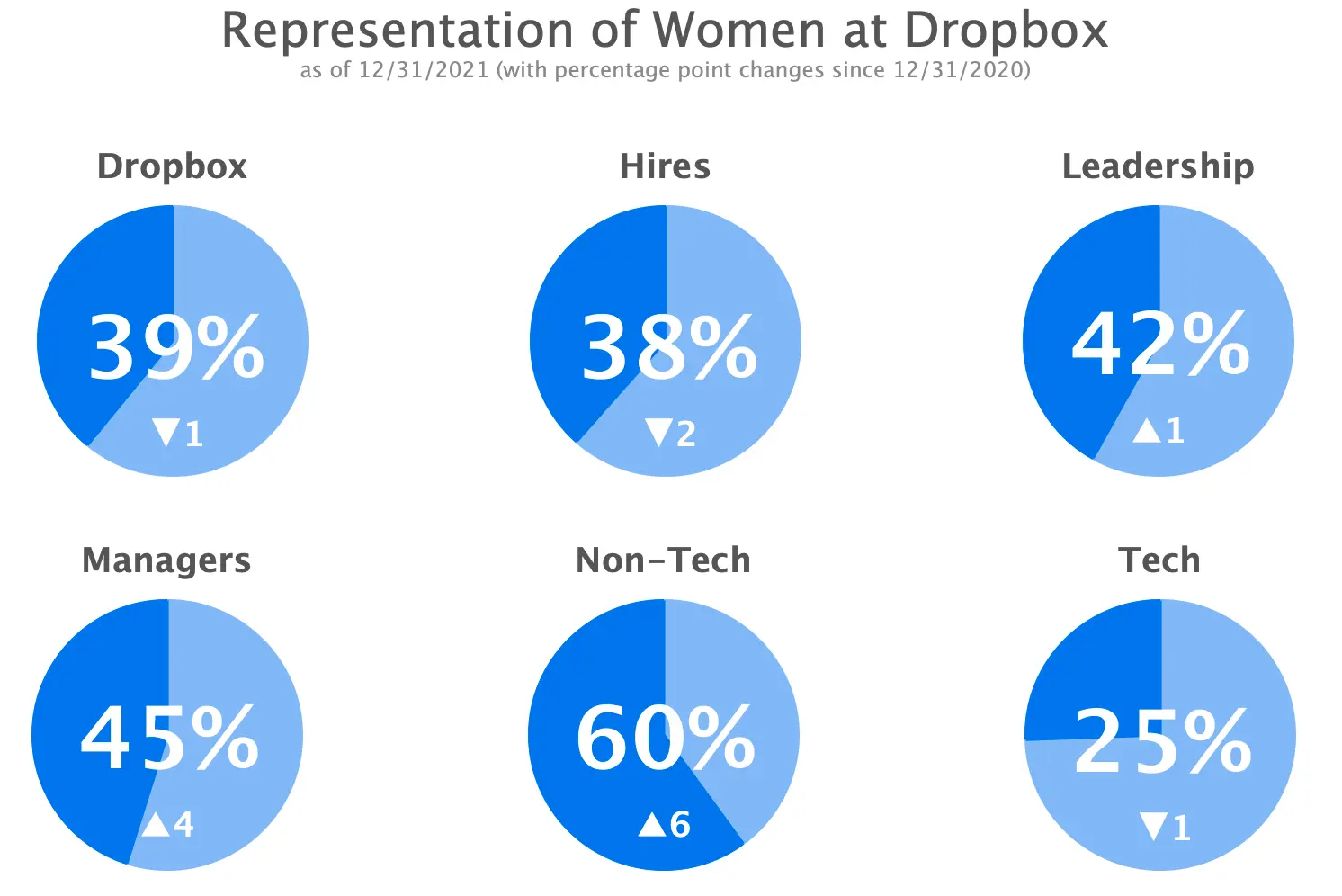
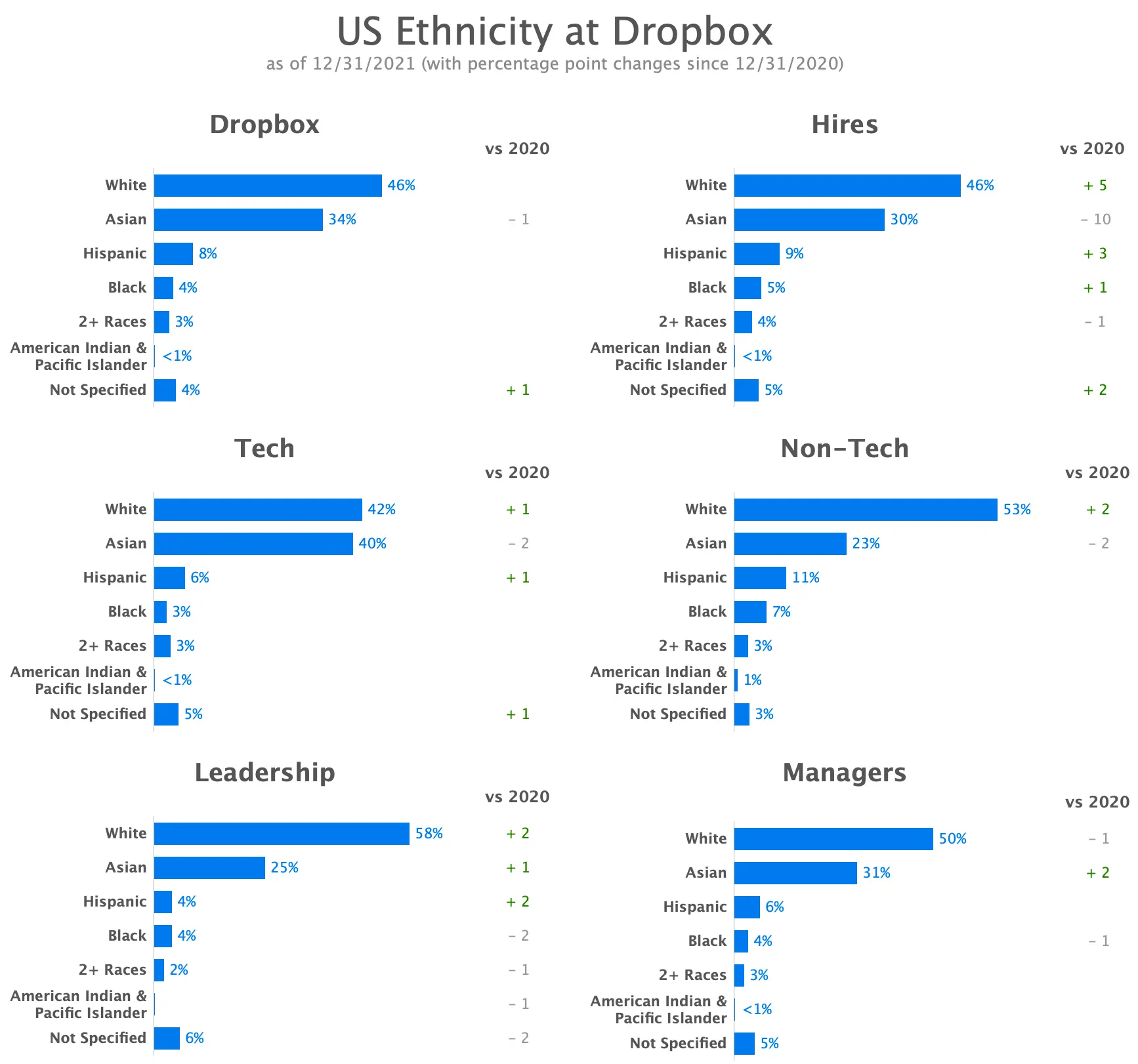
Footnotes:
1. Note: At Dropbox, underrepresented minorities (URMs) are defined as Black/African American, Hispanic/Latinx, Native American, or Pacific Islander.
2. Data on gender is global, and data on race is US only; data refers to full-time employees only

